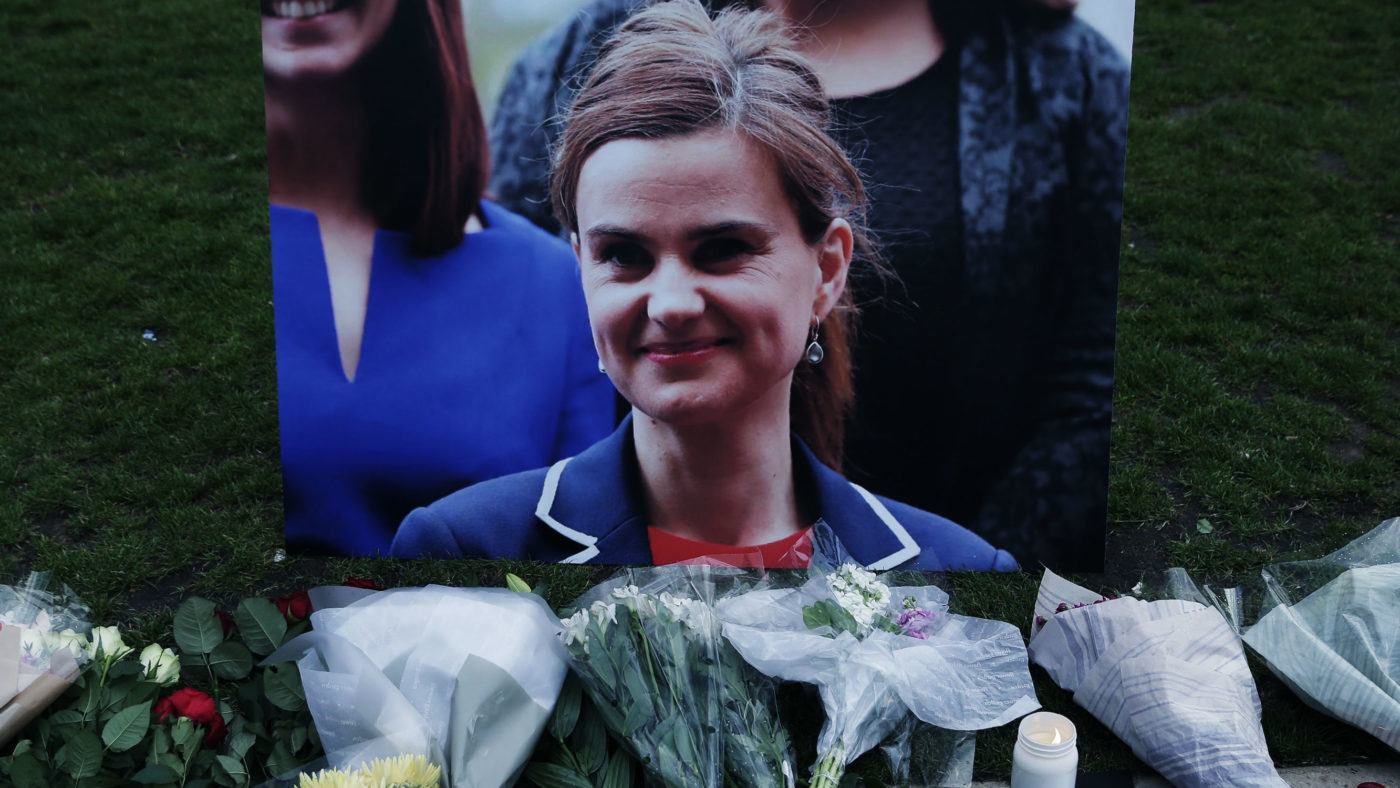Just before 1pm on Thursday 16th June, MP Jo Cox was shot and stabbed in her constituency in West Yorkshire. Police announced shortly after that she had died from her injuries. She was 41 years old.
The country is currently in shock. Tributes have come from all sides of the political spectrum, from David Cameron, to Jeremy Corbyn, to US Secretary of State John Kerry. Videos and transcripts of Jo Cox’s maiden speech in parliament, where she praised diversity and spoke in favour of immigration, are being widely shared. She has been described as a “rising star”, and though she had been an MP for only a year, she had clearly made her mark on the Labour party.
It is a bittersweet consequence that, after the most brutal and antagonistic week of EU referendum campaigning yet, the country is now united in shock and grief, and in celebrating Jo Cox’s life. Both the Remain and Leave campaigns are suspending all action for the foreseeable future, out of respect.
Her husband, Brendon Cox, has issued a heartbreaking statement, in which he said:
“Jo believed in a better world and she fought for it every day of her life with an energy, and a zest for life that would exhaust most people.
She would have wanted two things above all else to happen now, one that our precious children are bathed in love and two, that we all unite to fight against the hatred that killed her. Hate doesn’t have a creed, race or religion, it is poisonous.”
It is reported that one eyewitness heard the attacker say “Put Britain First”, a possible reference to the far-right anti-immigration group. This has not been confirmed, and the group has denied any involvement. There are also rumours circulating that the attacker may have suffered from mental health issues. Again, this has not been confirmed. A man named Thomas Mair has been arrested.
There are no words that can make sense of this terrible and senseless tragedy, especially in a country so unused to such attacks. But here are three pieces of commentary which may offer readers some context and different ways to process the violence Britain has witnessed today.
A Day of Infamy, Alex Massie, The Spectator
“We hope, because doing so offers a shred of comfort even in horrid moments, that he was just a ‘lone wolf’ or a lunatic acting alone. We hope so because hoping that makes it easier to say, once the shock has worn off, that this was a singular event of the sort that cannot be predicted. Sometimes terrible things happen.
Well, so they do. But we know that even lone lunatics don’t live in a bubble. They are influenced by outside events. That’s why, when there is an act of Islamist terrorism, we quite rightly want to know if it was, implicitly or explicitly, encouraged by other actors. We do not believe – at least we should not – in collective guilt or punishment but we do want to know, with reason, whether an individual assassin was inspired by ideology or religion or hate-speech or any of a hundred other possible motivating factors. We do not hold all muslims accountable for the violence carried out in the name of their prophet but nor can we avoid the ugly, unpalatable, truth that, as far as the perpetrator is concerned, he (it is almost always he) is acting in the service of his view of his religion. He has a cause, no matter how warped it may be. And so we ask who influenced him? We ask, how did it come to this?”
The Guardian view on Jo Cox: an attack on humanity, idealism and democracy
“Jo Cox, however, was not just any MP doing her duty. She was also an MP who was driven by an ideal. The former charity worker explained what that ideal was as eloquently as anyone could in her maiden speech last year. “Our communities have been deeply enhanced by immigration,” she insisted, “be it of Irish Catholics across the constituency or of Muslims from Gujarat in India or from Pakistan, principally from Kashmir. While we celebrate our diversity, what surprises me time and time again as I travel around the constituency is that we are far more united and have far more in common with each other than things that divide us.”
What nobler vision can there be than that of a society where people can be comfortable in their difference? And what more fundamental tenet of decency is there than to put first and to cherish all that makes us human, as opposed to what divides one group from another? These are ideals that are often maligned when they are described as multiculturalism, but they are precious nonetheless. They are the ideals which led Ms Cox to campaign tirelessly for the brutalised and displaced people of Syria, and – the most painful thought – ideals for which she may now have died.”
My fearless friend Jo Cox, a five-foot bundle of Yorkshire grit, Andrew Mitchell, The Telegraph
“A lot people in her situation would have been very reluctant to work with a wicked old Tory like me, but Jo never minded. During Commons debates about Syria, we would sit across the chamber exchanging text messages.
When we set up the All Party Parliamentary Group on Syria, she and I chaired it together, taking evidence from military commanders, diplomats and officials from the region. She might have been new to Westminster, but she led the way.
She was fearless, utterly fearless. Last year, we went to see the Russian ambassador in London, to give him a rollicking about the terrible way his country has behaved in Syria.
He’s a professional diplomat and a pretty tough case. But Jo got the better of him: it was her mixture of charm and steel.”
R.I.P Jo Cox.


